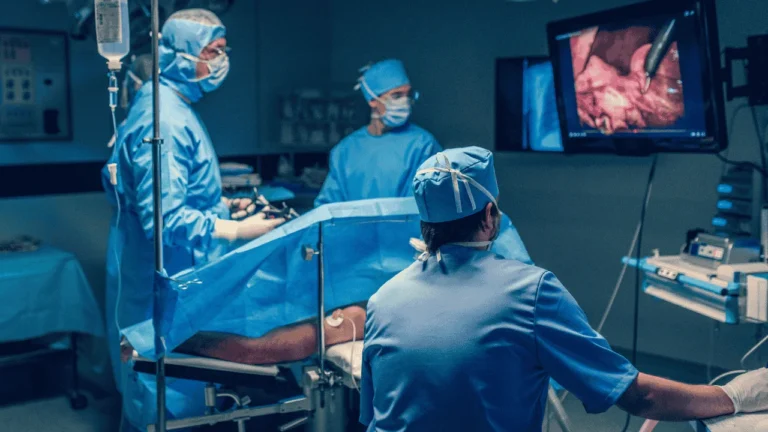Colon cancer or colorectal cancer is the leading cause of cancer-related deaths among men and women of old age. So, when people turning age 45 or older, it’s important to have a colonoscopy that could save their lives.
A colonoscopy is an endoscopic examination that allows doctors to look for any abnormalities inside the colon and rectum that could be cancerous or turn into cancer. A flexible tube (colonoscope) is inserted into the rectum and a tiny camera at the tip of the tube allows the doctor to see inside the large intestine.
The colonoscopic procedure is most commonly used to evaluate symptoms like abdominal pain, intestinal bleeding, or changes in bowel habits. This procedure can also be performed to prevent colon cancer by removing the pre-cancerous colon polyps.
You or your dear ones recommended having a colonoscopy but were unaware of the procedure. Do not worry. The best colonoscopy doctor at the Gut care clinic, explains more about colonoscopy and what to expect before, during, and after the colonoscopy.
What do I need to expect before a colonoscopy?
Before a colonoscopy, discuss with your doctor the medical conditions you have, including:
● Pregnancy
● Heart conditions
● Lung conditions
● Allergies to any medications
● Having diabetes or taking blood thinner medications as you need to stop these medications before the colonoscopic procedure.
How do I prepare for a colonoscopy?
There may be some dietary restrictions before the procedure, but they may vary according to the doctor’s instructions. You will need to limit or avoid solid foods 1 to 3 days before the procedure. You may also need to use laxatives or an enema before the colonoscopy
Make sure you arrange for a family member or driver to bring you home after the procedure. This is because you receive sedative medications during the procedure and so it is unsafe to drive for 8 hours after the procedure
What happens during the colonoscopy?
A colonoscopy is performed by gastroenterologists that last approximately 30-60 minutes. You will be given medications in your vein to feel relaxed and drowsy. You might feel a small prick from the IV needle when it is inserted.
To start the colonoscopy procedure, your doctor will blow air through the small tube into your colon. This expands the colon slightly so the doctor can see more clearly. You will be asked to change the position so that the doctor moves the colonoscopy tube or get a better view.
You may feel a bit of cramping during the procedure and this can be reduced by taking several slow and deep breaths. Once the doctor has finished the procedure, the colonoscope will be removed by carefully examining the lining of the bowel.
During the colonoscopy, if the doctor sees something abnormal, a small sample of tissue is removed for analysis (called a biopsy), and colon polyps or growth can be identified and removed.
In many cases, colonoscopy allows accurate diagnosis and can be treated without surgical procedures.
What happens after a colonoscopy?
As suggested by the best gastroenterologists in Bangalore, here are some things that you will know about what to expect after a colonoscopy.
● You will stay in the recovery room for about 30 minutes to 1 hour for observation
● You may feel abdominal cramping or the sensation of having gas, but it usually passes quickly.
● You must avoid alcohol, driving, and operating machines for 24 hours following the procedure.
● Unless instructed, you can resume your normal diet.
● Your doctor will recommend when it’s safe to resume taking your blood thinners or any other medications you might have stopped.
● If a biopsy was done or polyps were removed, you may experience rectal bleeding for one or two days after the procedure.
Call your doctor immediately, if you have:
● Prolonged rectal bleeding
● Severe abdominal pain
● Persistent fever or chills
● Dizziness
● Weakness
Waiting for rectal bleeding to have a colonoscopy? You might be thinking that the procedure is going to be painful. Do not wait longer. Schedule an appointment for colon screening with the qualified gastroenterologists at Gut care, Bangalore, and prevent life-threatening complications




